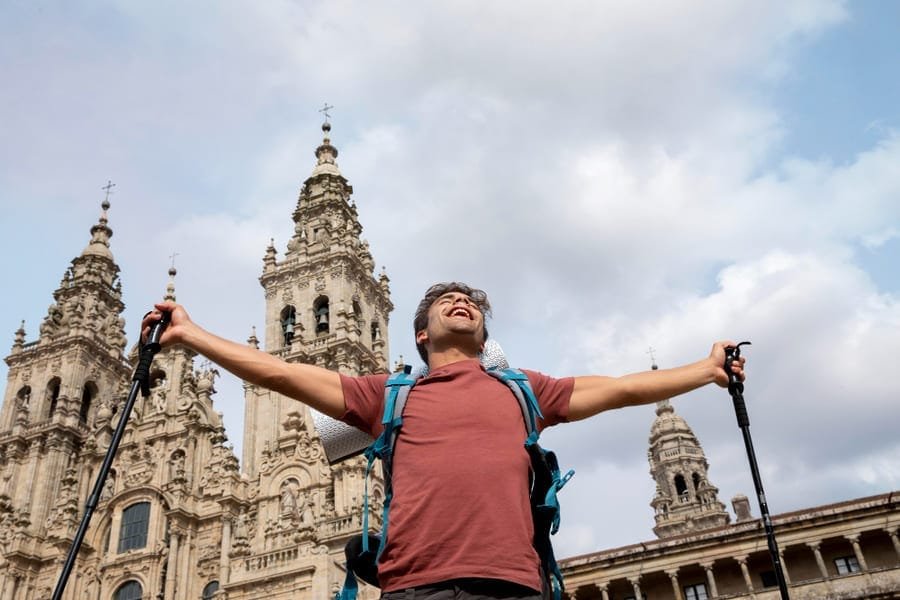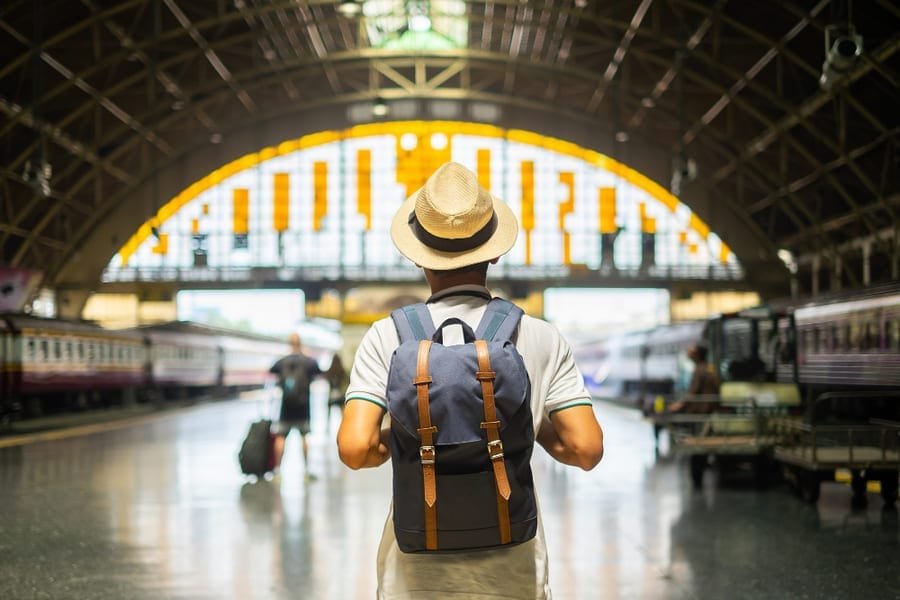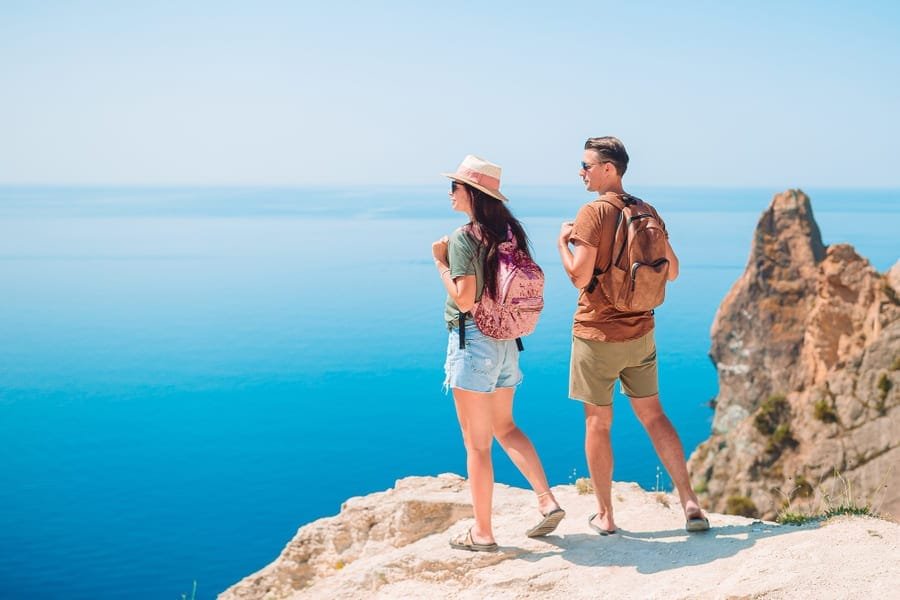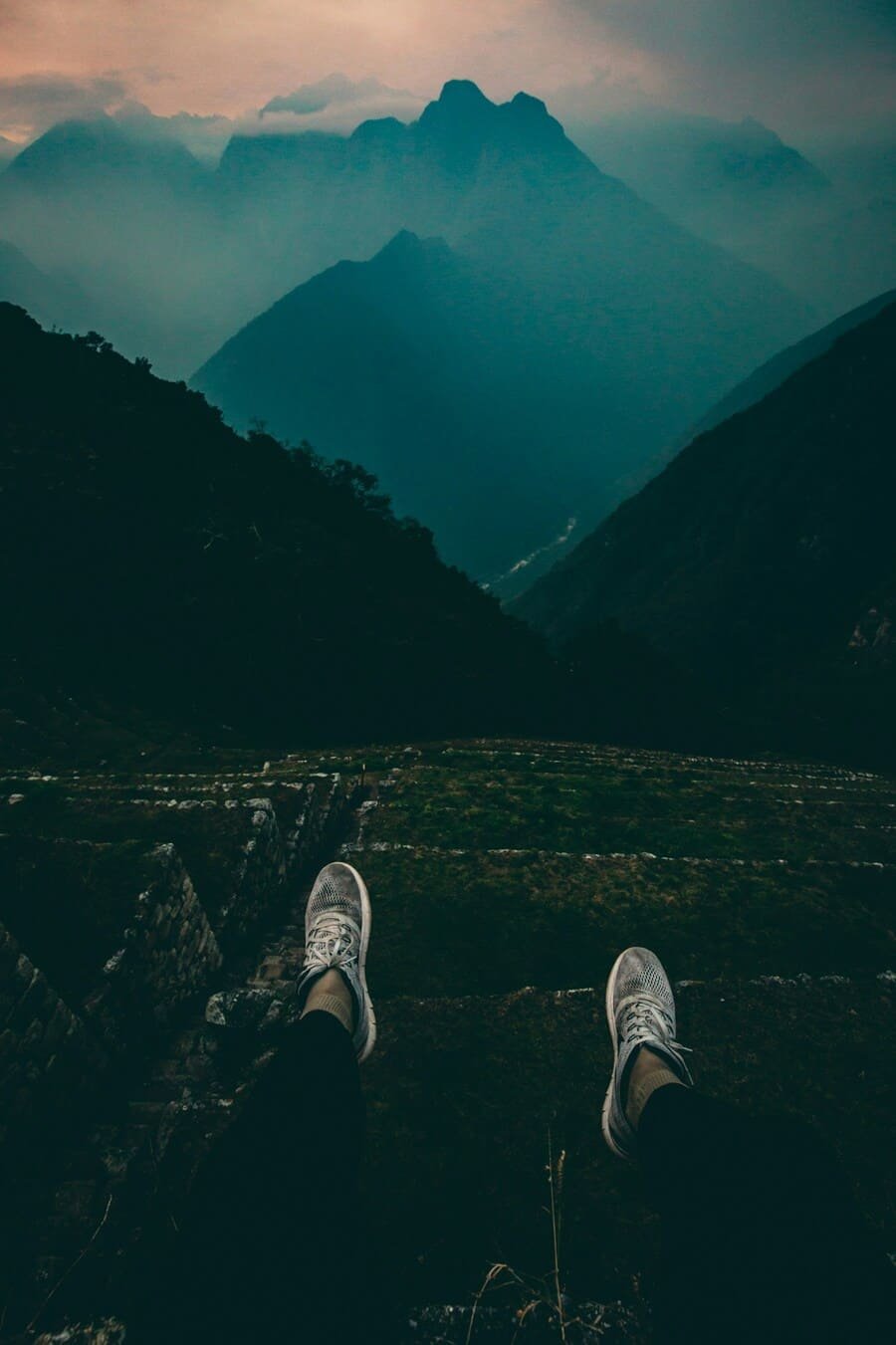There’s no denying the excitement and nervousness that come with begining on a new travel adventure. From navigating unknown territories to immersing oneself in different cultures, the journey is filled with a wave of emotions. As a seasoned traveler with extensive experience, I’ve learned a thing or two along the way. To help new travelers avoid common pitfalls and make the most of their trips, I’ve compiled a list of 11 imperative tips to guide you through your travel endeavors.
First and foremost, overcome any fears that may be holding you back. It’s natural to feel apprehensive when venturing into the unknown, but remember that millions of travelers navigate the world each year, and so can you. Take the plunge, embrace the journey, and be open to the unexpected experiences that await you. Additionally, while guidebooks offer valuable insights, connect with locals to discover hidden gems and insider tips that may not be found in traditional resources.
Another crucial tip is to travel at a slower pace to truly soak in the destinations you visit. Rushing from place to place can lead to burnout and missed experiences. Moreover, pack light to ease your travel burden and create space for spontaneity. Remember to secure travel insurance for peace of mind, bring a phone for connectivity, and most importantly, go with the flow and be open to new adventures. Whether changing plans mid-trip or seeking camaraderie with fellow travelers, remember that you’re never alone on your journey.
Table of Contents
Key Takeaways:
- Fear: Don’t let fear hold you back from traveling. Millions of people travel the world each year, and you are just as capable.
- Guidebooks: While guidebooks provide a good overview, rely on locals, free walking tours, and other travelers for up-to-date information.
- Travel Slow: Quality over quantity when it comes to travel experiences. Slowing down allows you to truly soak in your destinations.
- Pack Light: Avoid overpacking and bring only importants. You can always buy what you need on the road.
- Travel Insurance: Protect yourself against unexpected emergencies by investing in travel insurance.
Don’t Be Scared
While fear is a natural emotion when begining on a new travel adventure, it is important not to let it overpower your excitement. Traveling for the first time can be daunting, but remember that millions of people travel the world each year without any major issues. You are not alone in this journey, and there is a well-established travel trail with people willing to help and guide you along the way.
It’s crucial to acknowledge that mistakes may happen, as they are a part of the learning process. Even experienced travelers make errors from time to time. However, these mistakes often lead to valuable lessons that enhance the overall travel experience.

Additionally, the kindness and helpfulness of people you encounter during your travels might surprise you. Locals, fellow travelers, and even strangers can offer assistance, guidance, and friendship along the way. Embrace the spirit of adventure and the unknown, and you’ll be amazed at the connections you’ll make and the experiences you’ll have.
Don’t Live by Your Guidebook
Before launching on your travel journey, it’s important to understand that guidebooks serve as a valuable tool for providing a general overview of your destination. However, relying solely on a guidebook can limit your travel experience and hinder your ability to truly immerse yourself in a new culture.
Guidebooks are excellent for gaining basic knowledge and getting introduced to new cities and countries. Yet, they may not always offer the most up-to-date information on the latest off-the-beaten-path attractions, local bars, or hidden gems.
To truly enhance your travel experience, connect with locals. Utilize resources like Meetup.com or Couchsurfing to interact directly with locals and expats. Their insights and recommendations can provide a more authentic perspective of the destination. Additionally, consider joining a free walking tour when you arrive in a new city. Expert local guides can offer valuable advice on the best places to eat, hidden spots to explore, and unique activities to try.
Expand your knowledge by engaging with other travelers you meet along the way or seek recommendations from the staff at your accommodation. Don’t overlook the local tourist board as well, as they can offer valuable insights from a resident’s perspective. By supplementing your guidebook with current information from locals, you can create a more enriching and immersive travel experience.
Travel Slow
Clearly, one of the most important things to remember as a new traveler is to travel slow. Many new travelers make the mistake of trying to cram too many destinations and activities into a short period of time. Rushing from place to place can leave you feeling exhausted and overwhelmed, and you may not fully appreciate or remember the places you visit.

Traveling slow allows you to truly immerse yourself in a destination, to get to know the culture, the people, and the way of life. You’ll have the opportunity to spend more time exploring each place, to soak in the sights and sounds, and to truly appreciate the experience.
Not only does traveling slow enhance your overall travel experience, but it also helps to reduce your transportation costs. Moving from city to city frequently can add up in terms of transportation expenses. When you slow down and stay in one place longer, you can save money and truly savor the journey.
Pack Light
The key to a successful travel experience is learning to pack light. Many new travelers make the mistake of overpacking, filling their bags with unnecessary items that end up being dead weight during their trip. Packing light not only makes your journey more manageable but also saves you from the hassle of lugging around heavy luggage.
When packing, remember that you can always purchase items you may need on the road – from clothing to toiletries. Focus on the necessarys and versatile pieces that can be mixed and matched. A general rule of thumb is to pack outfits that can be worn multiple times and in different combinations to maximize your wardrobe options.
Consider the climate and activities of your destination when selecting clothing and gear to pack. If you are visiting a warm destination, opt for lightweight fabrics and versatile items that can easily transition from day to night. For cooler climates, layers are key to staying warm without overpacking bulky items.
Remember that a smaller, well-organized bag will make your travels much smoother. Opt for a carry-on sized backpack or suitcase to avoid checked baggage fees and make navigating airports and transportation hubs more efficient. Invest in packing cubes or compression bags to keep your belongings organized and create extra space in your luggage.
Get Travel Insurance
Assuming you’re a new traveler initiateing on a journey into the unknown, getting travel insurance should be at the top of your priority list. Travel insurance is not just a safety net but a crucial component of your travel planning that can provide you with peace of mind and financial protection in case of emergencies.
Why is travel insurance so important? Well, for starters, it can protect you from unexpected medical expenses if you fall ill or get injured during your trip. Medical emergencies abroad can be extremely costly, and having travel insurance means you won’t have to worry about draining your savings to cover medical bills.
Moreover, travel insurance can also provide coverage for lost or stolen belongings, trip cancellations, flight delays, and even emergency evacuation. In unforeseen circumstances like natural disasters or political unrest, having travel insurance can be a saving grace.

It’s vital to choose a comprehensive travel insurance plan that fits your needs and the nature of your trip. Be sure to read the policy details carefully, understand what is covered, and consider factors like trip duration, destination, and activities you plan to engage in.
Recall, travel insurance is not just about protecting your belongings; it’s about safeguarding your health, well-being, and overall travel experience. Don’t underestimate the importance of this vital investment in your travel adventures.
Bring a Phone
It is crucial for new travelers to bring a phone with them when initiateing on their journeys. Having a phone with data is not just convenient, it is a safety precaution that can be a lifesaver in unforeseen circumstances.
Having a phone with data means you can look up directions on the fly, make reservations, and contact emergency services if something happens. While free Wi-Fi is more widespread now, purchasing a local SIM card for data is still highly recommended as it provides immediate access to information and communication tools in case of emergencies.
If you are from the US and traveling for less than 3 months, consider reliable options such as T-Mobile or Google Fi for data plans. The ability to connect and stay in touch with fellow travelers is also easier with a phone.
Bear in mind, having a phone (with data) is an imperative tool for modern travelers, but it is important to strike a balance and not become overly reliant on it. Use it wisely, but don’t let it take away from fully immersing yourself in your travel experiences.
Go With the Flow
After creating your travel itinerary, remember to stay flexible and go with the flow. Life on the road doesn’t always go as planned – and that’s perfectly normal. While it’s important to have a general idea of what you want to do, allow room for spontaneity and unexpected discoveries.
A rigid schedule can lead to stress and disappointment if things don’t go according to plan. Embrace the unexpected and be open to changing your plans based on new opportunities or advice from locals.

When making your daily plan, consider including only a couple of must-do activities and leaving the rest of the day open for exploration. Allow yourself the freedom to follow your instincts and take advantage of any serendipitous moments that come your way.
By embracing adaptability and an open mindset, you’ll not only reduce stress during your travels but also create space for memorable, unplanned experiences that can truly enrich your journey.
Bring Extra Money
Your first trip as a new traveler is an exciting adventure waiting to happen. However, it’s important to be prepared for unexpected situations that may require extra funds. Here are some imperative tips to ensure you have enough money to cover any mishaps:
1. Overestimate Your Budget: It’s crucial to plan for more than you think you’ll need. Unexpected expenses can arise, and having a buffer will prevent you from running out of funds prematurely.
2. Emergency Fund: Always set aside an emergency fund for unforeseen circumstances, such as medical emergencies or last-minute changes in plans. It’s better to be safe than sorry.
3. Include Miscellaneous Expenses: Don’t forget to account for miscellaneous expenses, such as tips, souvenirs, or additional activities you may want to try. These small costs can add up quickly.
4. Access to Funds: Ensure you have access to funds while traveling. Carry a combination of cash, credit cards, and a backup payment method in case of emergencies.
5. Budget Wisely: Stick to a budget and track your expenses diligently. Avoid overspending on unnecessary items and prioritize experiences that matter most to you.
6. Research Currency Exchange: Familiarize yourself with the local currency and exchange rates to avoid being taken advantage of. Use reputable exchange services to get the best value for your money.
7. Stay Vigilant: Be cautious with your money and belongings while traveling. Keep valuables secure and avoid carrying large amounts of cash to minimize the risk of theft.
8. Remain Flexible: Be prepared to adjust your budget as needed. Unexpected opportunities may arise that are worth the investment, so stay open to new experiences.
By following these tips and bringing extra money on your travels, you’ll be better equipped to handle any financial challenges that come your way. Keep in mind, it’s always better to have more than you need than to find yourself short on funds during your trip.
Remember Commonality
Now, as a new traveler, it’s important to remember the commonality of the travel experience. Fear, excitement, and uncertainty are all part of the journey, and you are not alone in feeling these emotions. Millions of people travel the world each year, navigating the same challenges and uncertainties that you may encounter.

It’s crucial to understand that making mistakes is normal in the travel world. Everyone, even the most experienced travelers, has faced obstacles and errors along the way. Embracing these mishaps as part of the learning process will help you grow and become a more resilient traveler.
One of the greatest positives of traveling is the network of fellow travelers you will encounter along the way. These individuals will share your passion for exploration and provide invaluable insights and support. Embrace the opportunity to connect with like-minded individuals, as they can offer guidance, friendship, and a sense of community during your journey.
Be Adventurous
Many new travelers may feel apprehensive about stepping outside their comfort zone, but being adventurous is an crucial part of the travel experience. It’s where growth happens. This doesn’t mean you have to engage in risky activities, but it does mean pushing yourself beyond your usual boundaries.
Whether it’s trying new foods, begining on a challenging hike, or exploring a new city on your own, taking calculated risks during your travels can lead to personal growth and self-discovery. Bear in mind, the only way to truly expand your horizons is to step outside of what’s familiar.
Travel offers countless opportunities for adventure, each one holding the potential for excitement and memorable experiences. By embracing an adventurous spirit, you not only create lasting memories but also cultivate a sense of confidence that will stay with you long after your journey has ended.
Flexibility is Key
Despite all the planning and preparation, unexpected situations can and will arise during your travels. This is where flexibility becomes crucial. Being flexible in your travel plans can make or break your trip.
Adaptability is key when things don’t go according to plan. Flights get delayed, accommodations fall through, weather changes suddenly – the list of potential disruptions is endless. By being flexible, you can navigate these challenges with ease and find alternative solutions.

Not only does flexibility help you handle unexpected situations, but it also opens up opportunities for new experiences. Embrace changes in your itinerary as opportunities to explore hidden gems, meet new people, and create unforgettable memories.
Do not forget, flexibility doesn’t mean sacrificing your preferences or compromising your safety. It means being open to adjusting your plans when necessary to make the most of your travel experience.
You’re Not Alone
Once again, it’s important to remember that you’re not alone in your travels. The world may seem big and intimidating, but there is a vast network of fellow travelers, locals, and resources to support you along the way. It’s normal to feel nervous about heading out into the unknown, but rest assured that there are people willing to help and guide you.
Whether you’re feeling lost in a new city, encountering a language barrier, or simply seeking companionship, remember that everyone you meet along your journey is a potential friend. Embrace the opportunity to connect with other travelers, share experiences, and create lasting memories together. Traveling solo doesn’t mean you’re truly alone – it means you have the freedom to forge your own path and discover the world on your terms.
Conclusion
Presently, with the wealth of experience gained over fifteen years of travel, it is crucial to impart crucial advice to new travelers commenceing on their journeys. The 11 tips discussed above serve as a comprehensive guide to help navigate the challenges and uncertainties of travel. By following these tips, new travelers can avoid common mistakes and ensure a smoother and more enjoyable travel experience. For further insights on travel tips and advice, you can refer to the article 11 Travel tips for a safe and fun vacation • Brand stories.
From overcoming fear and embracing spontaneity to packing light and connecting with locals, each tip is designed to enhance the overall travel experience. By acknowledging the importance of flexibility and open-mindedness, new travelers can fully immerse themselves in the adventure and cultural richness awaiting them. Remembering that every journey is unique and personal choices are paramount, travelers can confidently navigate the world with a sense of empowerment and resilience.
As you commence on your travel adventures, remember that the key to a fulfilling experience lies in a combination of preparation, adaptability, and a willingness to step outside your comfort zone. By heeding the advice shared in these tips, new travelers can commence on their journeys with confidence and excitement, knowing that the world awaits with endless possibilities and unforgettable experiences.
Frequently Asked Questions
Q: Why is it important for new travelers to not be scared?
A: It’s important for new travelers to not be scared because fear can hold them back from fully experiencing and enjoying their travels. Remember that millions of people travel the world each year, and you are just as capable as anyone else. Embrace the unknown and be open to new experiences.
Q: How can new travelers make the most of their trip without relying solely on guidebooks?
A: New travelers can make the most of their trip by connecting with locals for up-to-date information, using websites like Meetup.com and Couchsurfing, taking free walking tours, asking staff at accommodations, and visiting local tourist boards. Guidebooks provide a foundation, but local advice can enhance the travel experience.
Q: Why is it recommended for new travelers to travel slowly?
A: Traveling slowly allows new travelers to fully immerse themselves in a destination, reduce stress, and have a more memorable experience. Rushing from place to place can be exhausting and may lead to missing out on the essence of a location. Quality over quantity is key to meaningful travel.
Q: Why is packing light important for new travelers?
A: Packing light is important for new travelers to avoid the hassle and stress of carrying a heavy backpack for extended periods. It also allows for greater mobility, flexibility, and ease of travel. Keep in mind, you can always purchase items abroad if needed.
Q: Why should new travelers prioritize getting travel insurance before their trip?
A: New travelers should prioritize getting travel insurance to protect themselves against unexpected events such as illness, injury, theft, or trip cancellations. Travel insurance provides peace of mind and ensures that they are covered in case of emergencies while abroad.
Featured Image by Freepik.com







